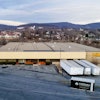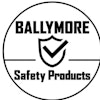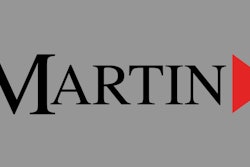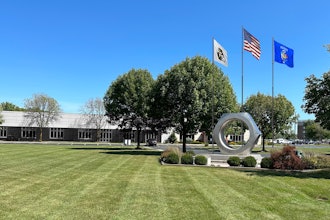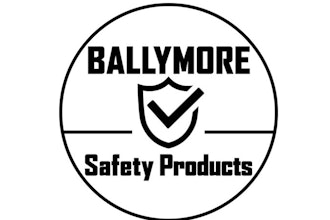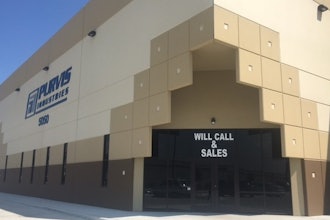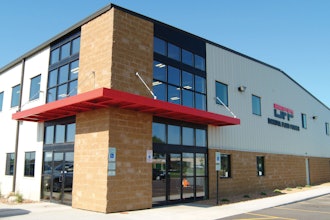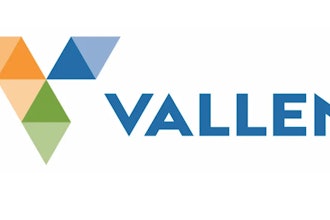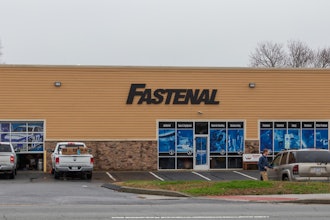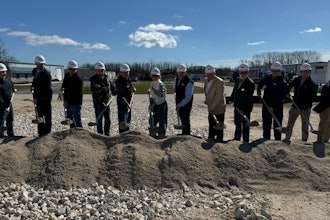Even with 90 years of distribution under its belt, Turtle & Hughes never stops evolving.
When you set out to define Turtle & Hughes, you may find it doesn’t fit neatly into a traditional “distributor” box — but that’s by design.
This NJ-based multi-commodity procurement company identifies in a way that is distinct from many of the companies in its competitive set. In a blend of new and old school, Turtle & Hughes brings core competencies in several product categories to its integrated supply platform, creating a strategic advantage for its customers. Yet this aggressively competitive approach is all wrapped up in a homegrown, ESOP company where it’s not uncommon for an employee to spend a career.
One gets the impression that the Turtle & Hughes executive team are actually pals. The atmosphere is relaxed and familial, and big business questions are tackled with what CEO Jayne Millard refers to as “healthy debate.” It’s this kind of debate that helps build collaborative efforts internally; Turtle & Hughes employees are used to having a voice because the company prides itself on providing a framework for entrepreneurs. This is an environment, says SVP of the Electrical and Industrial Distribution Division Randy Roessle, where employees are encouraged to “go out there, use your creativity, build the business, and you’ll have all the support mechanisms behind you to do that.”
Entrepreneurial Spirit
Entrepreneurship is a key foundation of the Turtle & Hughes way. Established in 1923, this company is helmed by Millard and supported by two newly appointed Presidents: Rick Reffler, Electrical and Industrial Distribution Division, and Michael DeVoney, Turtle & Hughes Integrated Supply (THIS). Millard is the daughter of Frank and Sue Millard, former SVP and president, respectively. Though retired, Frank and Sue are still leaders, in a sense — sending cards to each employee on their birthdays, and regularly calling team members to provide business input. Roessle describes Sue and Frank Millard as a type of venture capitalists — re-investing money into Turtle & Hughes to support the efforts of skilled entrepreneurs, allowing them to use their own experience and creativity to look at a customer problem from a unique perspective. Says Roessle, “That transcends through the entire organization. We have a lot of people out there doing their own thing, and they know they’ve got the support of the organization behind them. It’s a very fair place to work.”
“We really push a philosophy of collaboration,” adds Millard. “There is a spirit of teamwork that’s focused on constantly improving and innovating. It’s almost an internal challenge.” Luckily for Turtle & Hughes, improvement and innovation are the best ways to survive in this marketplace, therefore recent internal initiatives have focused on better ways to address customer needs.
Integrated Supply: The Value Proposition
One of these ways has been a focus on integrated supply. Though Turtle & Hughes first launched this effort back in 1993, the company doubled down on its investment by adding additional expertise in 2012, including DeVoney, who is responsible for developing new business, operational excellence, and applying integrated supply principles garnered from his 35 years of industry experience — and brings an “outsider’s perspective” to the table.
At its most basic, THIS helps businesses achieve significant cost savings in their MRO programs through a range of targeted services. THIS even guarantees total cost savings up to 25 percent through its comprehensive savings programs. Starting with a thorough supply chain analysis, THIS will benchmark a customer’s business processes, leveraging this data to identify improvements and lower TCO for indirect products. THIS can also provide transaction management through its purchasing services, which allows customers to focus on lowering their direct material costs.
DeVoney is passionate about THIS — specifically the ways in which Turtle & Hughes can bring a competitive edge to its customer base as it competes for projects with distributors and business process outsource models that don’t quite offer the same value proposition. In the case of THIS, customers receive the benefit of dealing with a core competent distributor – whether it be industrial, electrical, safety, or production cutting tools – but also an advantaged re-seller, in the sense that THIS’s services often provide the biggest carrot based on its capabilities on the electrical side. These include areas like lighting and energy audits, automation, and data collection — areas where a strong ROI and THIS’s expertise make implementation almost a no-brainer. Not to mention, these projects can typically come out of capital expenditures rather than MRO spend.
Some of Turtle & Hughes’s more recent acquisitions have been strategic in the support of these service efforts — a consulting services company that specializes in environmental compliance for fossil fuel burning power plants, as well as MagTrol Long Beach, a wholesale distributor of a broad range of electrical and automation equipment, supplies, and renewal parts based in Long Beach, CA. The MagTrol acquisition has provided THIS with some additional expertise. For DeVoney, it’s important that the customers trust and utilize this service capability. “If you need somebody to review a machine tool line or look for ways to increase opportunities through automation, we’ll send our experts anywhere.” In addition to in-person expertise and integration, THIS provides a role in managing data collection and compliance that many of its customers need in order to trim costs out of their enterprise. And THIS is proud to be able to offer a leg up to a customer wishing to expand: while servicing some of their product needs, they can offer the kinds of insights that most of their competitors can’t.
Employees as a Competitive Advantage
In addition to its competitive advantage in integrated supply, Turtle & Hughes has a few tricks up its sleeve. The company is making a serious effort to nurture the skill set of its existing staff through the recent launch of Turtle University, an initiative designed to better develop and sustain top-notch employees by providing on-going training and specialized support.
Likewise, the company is making an investment in younger skilled workers in order to take advantage of knowledge transfer opportunities. “We’re hiring a number of young people with engineering and mechanical degrees,” says Reffler. “We’re investing in the younger generation so they can learn from all of us before the end of our tenure; we want to teach them all that we know and share our success stories.” Reffler has been in the electrical and industrial distribution business for 43 years and sees the transparency of the Turtle & Hughes culture as a key benefit for employees. “I believe we have the best employees, some of whom are approached by other employers, that don’t leave due to the opportunities and career paths that Turtle & Hughes can provide,” he says. “They love the environment we’ve created and feel secure because we don’t hide behind closed doors; we share a lot of information about how the company is doing along with our expectations for growth.”
Turtle & Hughes also believes it can better retain employees by remaining a privately held firm. When public companies need to cut costs, it’s not uncommon for them to shed staff to keep stock prices up. Instead, Turtle & Hughes can continue to invest in skilled personnel to help navigate any tough years and keep key employees in place for the long term. As some of their bigger accounts promote from within or utilize temporary labor, Turtle & Hughes finds its own employees can offer long term, consistent knowledge and insight into customer sites. “I think Turtle & Hughes leads with consistency,” says Millard, “in its relationships and its management style, its priorities, philosophies, and its ethical base. We believe strongly in never straying from that core ethical piece, because it’s a very slippery slope. People just naturally want to align with a company that stands for the things that they stand for.”
Besides the cultural and ethical underpinnings, Turtle & Hughes employees have access to the company’s 35 percent ESOP (employee stock ownership plan). The management team describes this incentive as another method to promote the entrepreneurial spirit that embeds itself in everything: the ESOP provides a tangible element to the idea that everything an employee does impacts the bottom line.
The Modern Day Distributor
Despite its unique vantage point, many of the current challenges that Turtle & Hughes faces are not dissimilar to the pain points of any distributor. The company spent three years integrating a new ERP system in order to position it to take advantage of relevant technological solutions for its customers. The InforSX go-live was in April of 2013, and features a lot of customization, including bolt-ons for logistics like truck routing, freight, and billing. This has done wonders to improve operational efficiency in the distribution centers, some of which are now able to employ paperless technology.
From a customer side, the technology question is a bit more complex. Turtle & Hughes is not the kind of company where a high SKU ecommerce site serves as an exact fit. “In so many of our normal discretionary business transactions, there’s always a little bit of engineering that goes on in a phone conversation,” says Roessle. “It’s rarely a case where the customer has ten part numbers and the quantities; it’s always some twist or turn that happens in the discussion that doesn’t happen naturally in an electronic transaction.” That said, Turtle & Hughes ecommerce strategy is like everything else they do — custom. “We’ll amplify our existing brand, and do it on a platform that’s going to enable transactional capabilities.”
Other challenges for Turtle & Hughes echo throughout the industry as well — namely the terms and conditions question. According to Reffler, terms and conditions are becoming so sophisticated that some customers are predicting interest rates out nearly 18 months. The result is they’re trying to negotiate extended payment terms, leaving the distributor wondering whether they should be acting more like a bank in those situations. “Those are the challenges that are always there, but the dials are turning a bit to ramp them up,” adds Roessle.
Challenges aside, Turtle & Hughes spends most of its time focusing on the basics — keeping the customer needs in mind. “We recognize that as a distributor who is an integrator, service is key to survival,” says Millard. Partnerships address the service requirements that Turtle & Hughes can’t fulfill in-house, and a highly trained inside sales staff can help point out gaps in a bill of materials — all with the intention to ultimately reduce customer costs. Says DeVoney, “Bottom line, they’re interested in our business because it works.”


